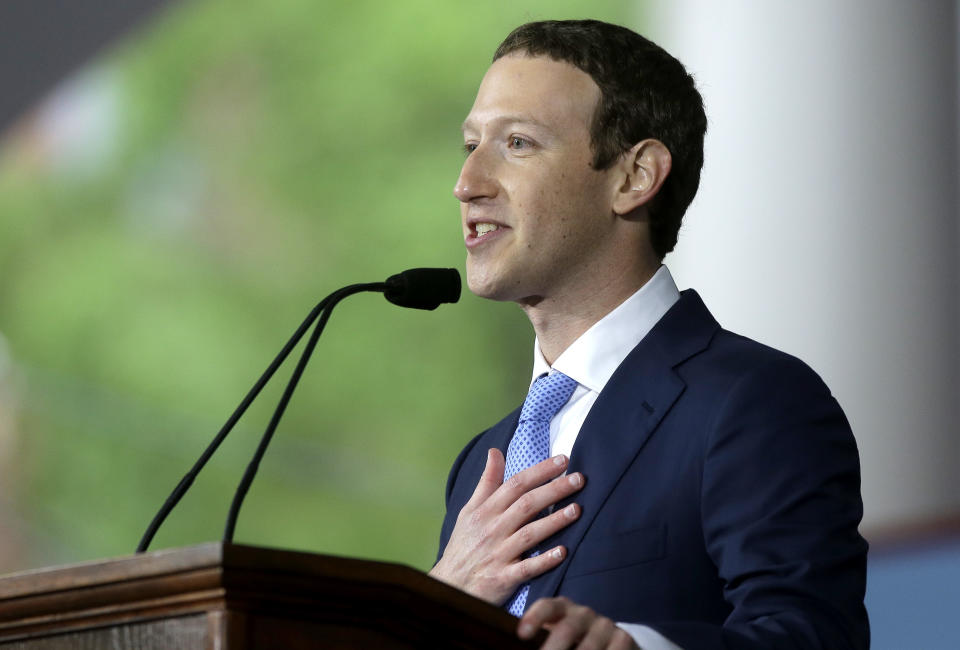What should keep Facebook shareholders up at night

[This originally appeared on TheReformedBroker.com.]
The power of Facebook advertising – let’s say they can identify 2 billion people around the world based on 200 points of data, which allows them to offer advertisers the holy grail of targeting. Now companies know exactly who is seeing their ads – only the “right” potential consumers. This is unheard of in the history of the world.
Facebook’s shareholders have been rightfully rewarded for the company’s marketing prowess. It now sports a market capitalization of $500 billion – the only two companies worth more are Apple and Microsoft. Exxon, J&J, Google, JP Morgan, Berkshire – they’re all worth less.
So it is true that Facebook has an amazing marketing product and it is also true that the world now fully appreciates this fact.
But what if not everyone agrees to play along? What if this ability to micro-target every living human being to the degree of 200 individual data points is not okay anymore? For example, what if a foreign government – say, Germany – decides that 200 data points is too much information for Facebook to collect and make available about their citizens to advertisers? What if Germany says, “You know what? This is not okay. From now on, you can only utilize 100 of those 200 data points. We don’t want our sovereign citizens targeted to that degree by anyone – dishwashing detergent firms, political parties, special interest groups – it’s too much influence.”
Now what if this happens, and Facebook acquiesces so as to stay out of court, and then a month later Japan says they’d like the same thing? And then the Netherlands? And then the state of Florida? And then the city of Las Vegas? And so on? What if the world begins to make the decision that no entity – corporate or otherwise – ought to have the sort of broad, unchecked free reign that Facebook (and to a lesser extent, Google) has enjoyed over the last few years?
Does Facebook face them all down, one after another, to preserve their advertising technology advantage? Or do they willfully comply and water down their programs? In either case, could this conceivably be a positive for shareholders of Facebook stock?
I can’t imagine how.
Can you?
Now you might be saying, “That’s not realistic! No one is going to require Facebook to become less good at what they do!”
You’d be wrong. This is absolutely within the realm of possibility, historically speaking. They did it to Microsoft twenty years ago and it’s taken the company approximately this entire span of time since to recover. They did it to AT&T back in the day, the irony being that shareholders made a lot more money once all of the component spin-off subsidiaries were given to them. They did it to John D. Rockefeller’s Standard Oil, even though it took almost twenty years to make it through the courts. By the time they were done with him, it was almost like a relief.
Governments that feel threatened or genuinely fear for the safety and/or competitive position of their constituents will absolutely take action if they feel the need to. Uber must now negotiate with the city of London in order to keep operating there beyond the end of September. They’ll probably get to stay, but not without concessions. Might some of those concessions include a lightening up of the company’s competitive advantages over the black car taxi system that’s long held sway in that city?
This week Facebook announced that it will make public all of the ads purchased by Russian interests during the 2016 elections. That’s a start. But the bigger question should not be about the content of the ads or the purported sponsors. It should be about how it can be possible that ads like these can be so lethally effective. The answer, of course, is that Facebook has a one-of-a-kind delivery method to ensure direct hits. How will that sit with Congress when they begin to get their heads around this concept. I am convinced that, for the most part, they are until now completely clueless.
If a government decides that there is a such thing as too much influence being held by a corporation, technology giant or otherwise, there is a risk to its shareholders. We do not live and work in some sort of utopian paradise where all progress is universally celebrated and allowed, unmolested, to do what it will, to whom it will, with what information it pleases.
And I’m not sure how many fishing trips and RV rides Mark Zuckerberg has the time to go on, around the world, in order to preserve the company’s monopoly on our collective attention.
More from Josh Brown: